Consiglio dei Quaranta o Quarantia
The L’Archivio di Stato di Venezia: indice generale, storico, descrittivo ed analitico by Andrea Da Mosto was published in 1937. Besides being a general index of the holdings of Venetian documents in the state archive, it contains short historical descriptions of most Venetian offices and magistracies.
Andrea Da Mosto (1868-1960) was director of the Archivio di Stato di Venezia (1936-1937).
The Council of 40, which some say dates back to 1179, was probably created only in the early 13th century with a procedure similar to that of the Maggior Consiglio and with very different attributions from those subsequently assumed.
It was the seat of appeal of the sentences issued by the magistrates of Venice and, later, also of the subject lands; it judged serious criminals cases. But it also had, under the presidency of the Doge and of the Minor Council, who were an integral part of it, especially in the early days of its establishment, beyond the judicial jurisdiction, much influence in political affairs and administrative bodies not only as an executive body, but also as legislative by delegation of the Maggior Consiglio, to which it was subjected by law. With changes to the form of composition of the Major Council, the XL voted to approve the members of the Council of the Pregadi and of the Great Council and decided on the applications of those who, after 1297, applied to be admitted to the Great Council.
Furthermore, the documents show that it prepared the deliberations which were then voted on in the Maggior Consiglio, that it heard foreign envoys, finally that it did almost everything that later passed to the Collegio and Pien Collegio: that it presided furthermore for some time over the economy, deciding on taxes, governing the Mint, etc.
From the beginning of the fourteenth century, it deliberated in union with the Council of the Rogati.1 Already during the 13th century, the Maggior Consiglio having delegated some business to the Pregadi, said «Rogatis et Quadraginta per quos fiunt omnia magna facta tam Communis quam specialium personarum”; but it cannot be deduced from this whether the deliberations were collective.
In 1324, they were called «unum corpus et unum consilium»; it is not, however, certain that the union was constant and continuous, although, since 1338, they are no longer named distinctly.
However, until the beginning of the fifteenth century, the Quaranta had its own legislative activity, which gradually disappeared when it was absorbed by the Rogati, for the unification of the two bodies.
The Council of XL, however, retained distinct judicial powers, both civil and criminal, which became predominant in its specific functions. This too, at the beginning of the fifteenth century, was divided into two: the ancient Quaranta retained criminal jurisdiction: for civil affairs a new assembly was established with 40 members, called Quarantia Civile, which subsequently was divided into Civil Vecchia and Civil Nuova, by the election of another 40 members, to whom the appeal cases from the Mainland were referred after the conquest. Once the Quarantia Civil was established, the members of one moved to the other after six months in office, but after the division of the two civil Quarantie the method of election was radically changed by the Maggior Consiglio, remaining elective only the first 40, which subsequently passed into the other two assemblies without further election, and thus arriving at the Criminal they were, for the period during which they practiced that office, members of the Rogati.
For civil cases of lesser importance were established, under the Quarantie, the Colleges of the XV and XXV, which, in the early days, were made up of XII and respectively XX patricians.
The three Quarantie each elected three leaders from among themselves, two deputy heads, and two contradictors (a kind of auditors of the Councils).
The three leaders of the Quaranta Criminal were part of the Serenissima Signoria, of which, by law of the Major Council of 15 December 1437, three of the outgoing ducal councillors held office for three months, with the qualification of Counsellors Inferiori, in the Quarantia Criminale together with one of its leaders to preside over it in certain cases as established by law.
The Quarantia Criminale also elected three Presidenti sopra Uffici, to which the discipline of the entire civil ministry of the Republic was entrusted, over which the Council had deliberative and judicial powers, as also on the banks of the Ghetto and over other disciplinary relationships.
Translator’s notes
- The Rogati is yet another name for the Pregadi or Senate. ↩︎
Original Italian text
CONSIGLIO DEI QUARANTA O QUARANTIA
II Consiglio dei 40, che da taluni si suol far risalire al 1179, probabilmente fu creato soltanto nei primi anni del secolo XIII con procedura analoga a quella del Maggior Consiglio e con attribuzioni molto diverse da quelle posteriormente assunte.
Era sede di appello delle sentenze emesse dai magistrati di Venezia e, più tardi, anche delle terre soggette; giudicava i casi gravi criminali. Ma ebbe anche, sotto la presidenza del Doge e del Consiglio Minore, che ne facevano parte integrante, specialmente nei primi tempi di sua istituzione, oltre la competenza giudiziaria, larga ingerenza negli affari politici o amministrativi non soltanto come organo esecutivo, ma anche legislativo per delegazione del Maggior Consiglio, al quale fu aggregato di diritto. Mutata la forma di composizione del Maggior Consiglio, furono sottoposte al voto dei XL le approvazioni dei membri del Consiglio dei Pregadi e Maggiore e la decisione sulle domande di chi, dopo il 1297, chiedeva di essere ammesso al Maggior Consiglio.
Inoltre dai documenti risulta che preparava le deliberazioni che si votavano poi nel Maggior Consiglio, che udiva gli inviati esteri, che infine faceva quasi tutto ciò che posteriormente incombette al Collegio e Pien Collegio: presiedette di più per qualche tempo all’economia, deliberando le imposte, governando la Zecca, ecc.
Fin dal principio del secolo XIV, deliberava in unione al Consiglio dei Rogati. Già nel corso del secolo XIII, delegando il Maggior Consiglio alcun affare ai Pregadi, diceva «Rogatis et Quadraginta per quos fiunt omnia magna facta tam Communis quam specialium personarum»; ma da ciò non si può dedurre se le deliberazioni fossero collettive.
Nel 1324, erano detti «unum corpus et unum consilium»; non è però sicuro che l’unione fosse costante e continua, sebbene, dal 1338, si cessasse dal nominarli distintamente.
Tuttavia, fino al principio del secolo XV, i Quaranta ebbero un’attività legislativa propria, la quale venne scomparendo quando fu assorbita dai Rogati, per la riunione dei due corpi.
Il Consiglio dei XL conservò invece distinto il potere giudiziario, sì civile che criminale, che divenne preponderante nelle sue funzioni specifiche. Anche questo, nel principio del secolo XV, fu bipartito: gli antichi Quaranta conservarono la giurisdizione criminale: per gli affari civili si instituì un nuovo consesso di 40 membri, detto Quarantia Civile, la quale successivamente fu divisa in Civil Vecchia e Civil Nuova, per l’elezione di altri 40 membri, cui erano deferite le materie di appello della Terraferma dopo la conquista. Instituita la Quarantia Civil, i membri dell’una passavano nell’altra dopo sei mesi di carica, ma dopo la divisione delle due Quarantie civili fu radicalmente mutato il metodo di elezione, da parte del Maggior Consiglio, restando elettivi soltanto i primi 40, i quali successivamente passavano negli altri due consessi senza ulteriore elezione, e arrivati così alla Criminale erano, per il periodo durante il quale esercitavano tale carica, aggregati ai Rogati.
Per le cause in materia civile di minore importanza furono istituiti, in sussidio delle Quarantie, i Collegi dei XV e dei XXV, che, nei primi tempi, si componevano rispettivamente di XII e di XX patrizi.
Le tre Quarantie eleggevano nel loro seno, ciascuna, tre capi, due vicecapi, e due contradittori (specie di fiscali dei Consigli).
I tre Capi della Quarantia Criminale facevano parte della Serenissima Signoria, della quale, per la legge del Maggior Consiglio del 15 decembre 1437, tre dei consiglieri ducali uscenti di carica passavano per tre mesi, con la qualifica di Consiglieri Inferiori, nella Quarantia Criminale insieme ad un capo di essa per presiederla in determinati casi stabiliti dalla legge.
La Quarantia Criminale eleggeva inoltre tre Presidenti sopra Uffici, ai quali era affidata la disciplina di tutto il ministero civile della Repubblica, sul quale aveva il Consiglio facoltà deliberative e giudiziarie, come eziandio sui banchi del Ghetto e sopra altri disciplinari rapporti.
, …
Related articles
- Quarantia — Lessico Veneto
- Quarantia — Dizionario
- Senato — ASV Indice
- Maggior Consiglio — ASV Indice
- State institutions of the Republic of Venice
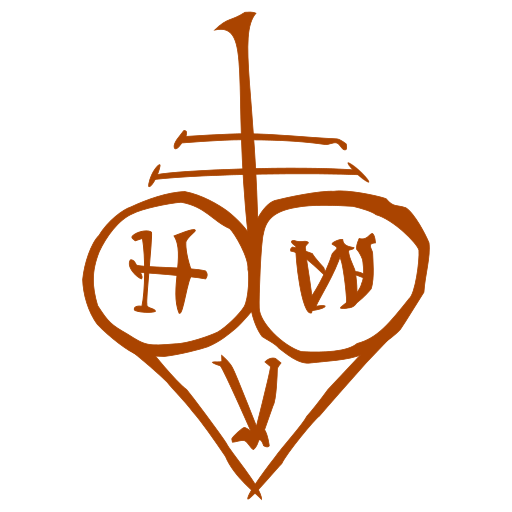
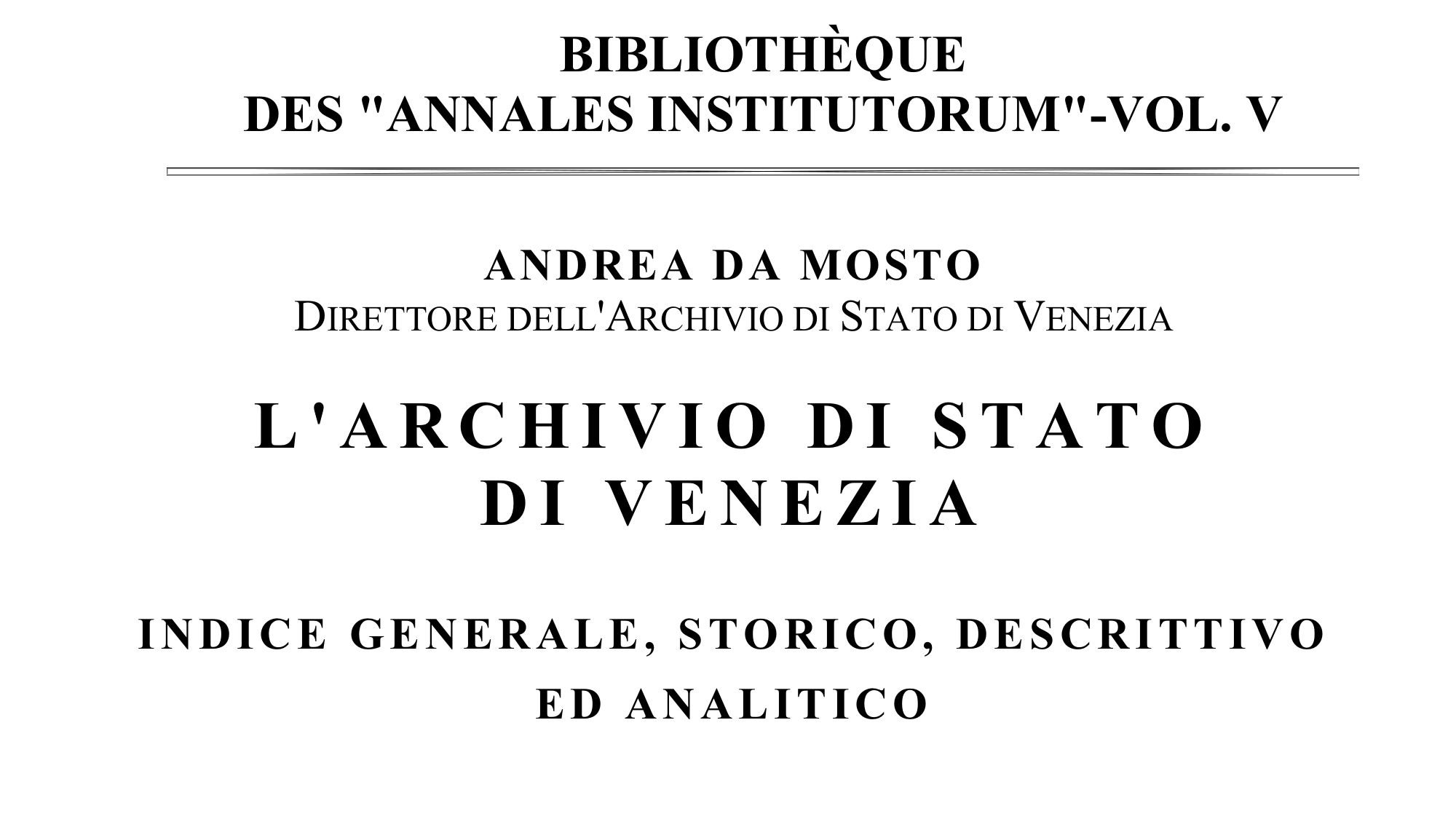
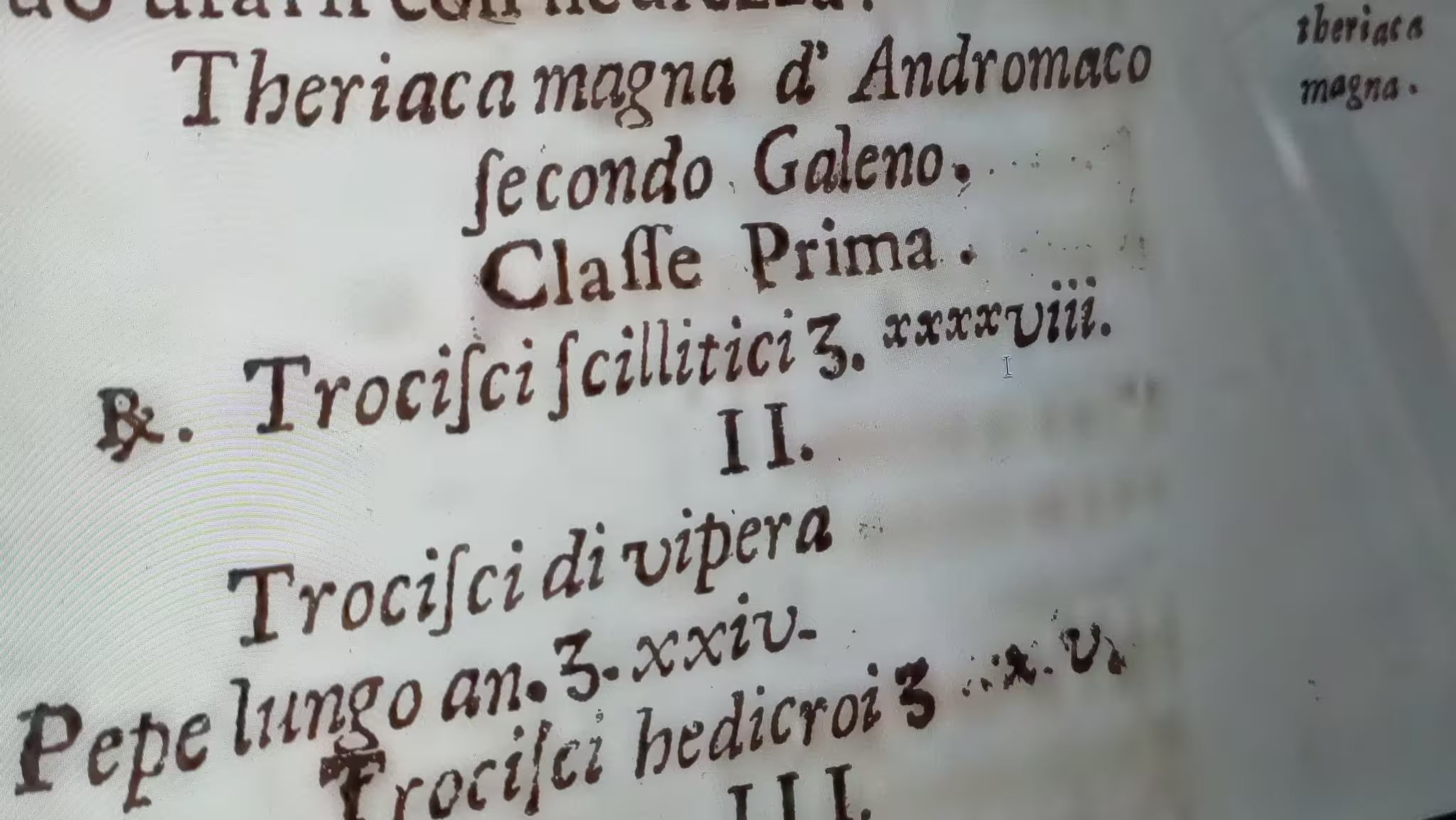
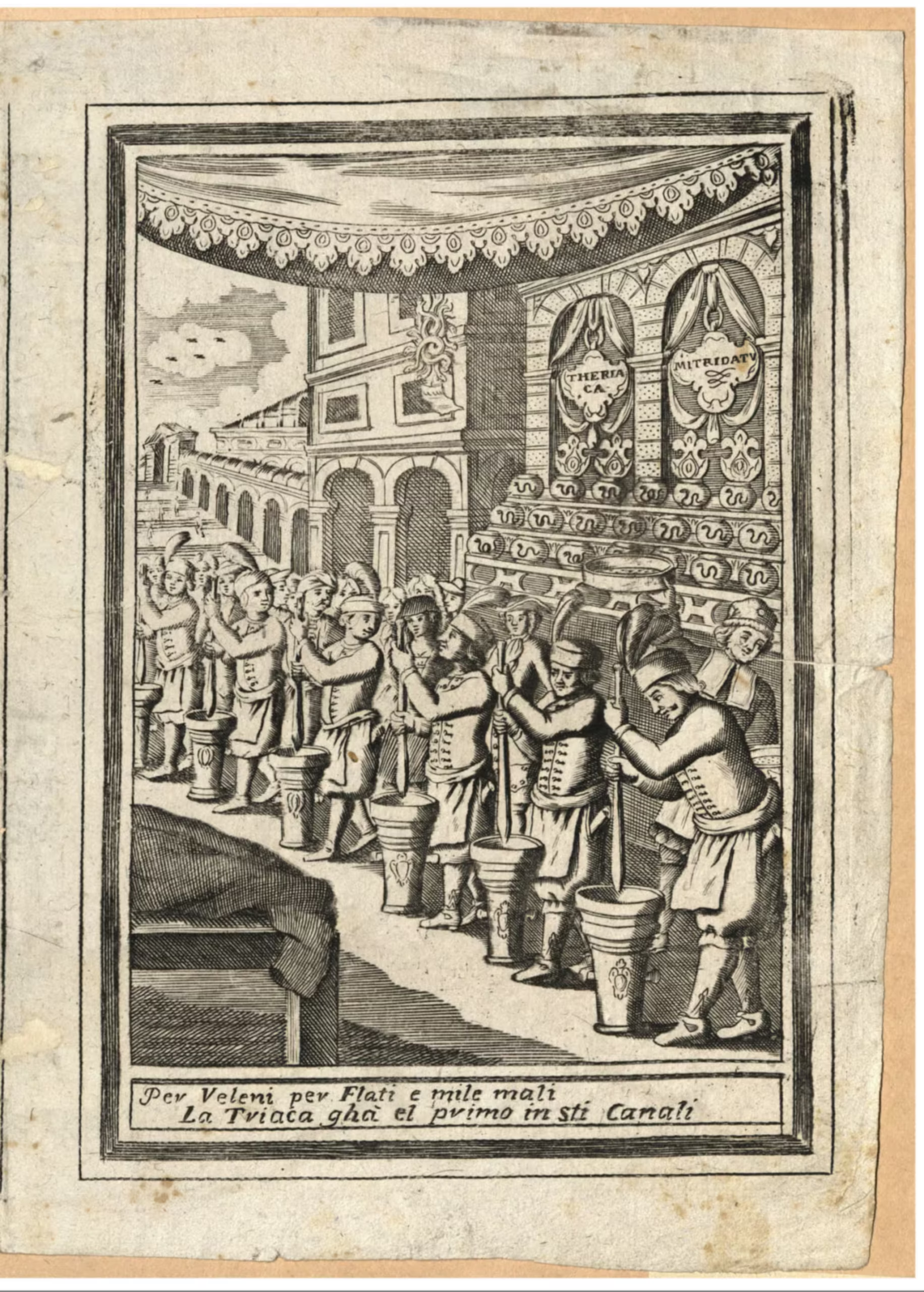
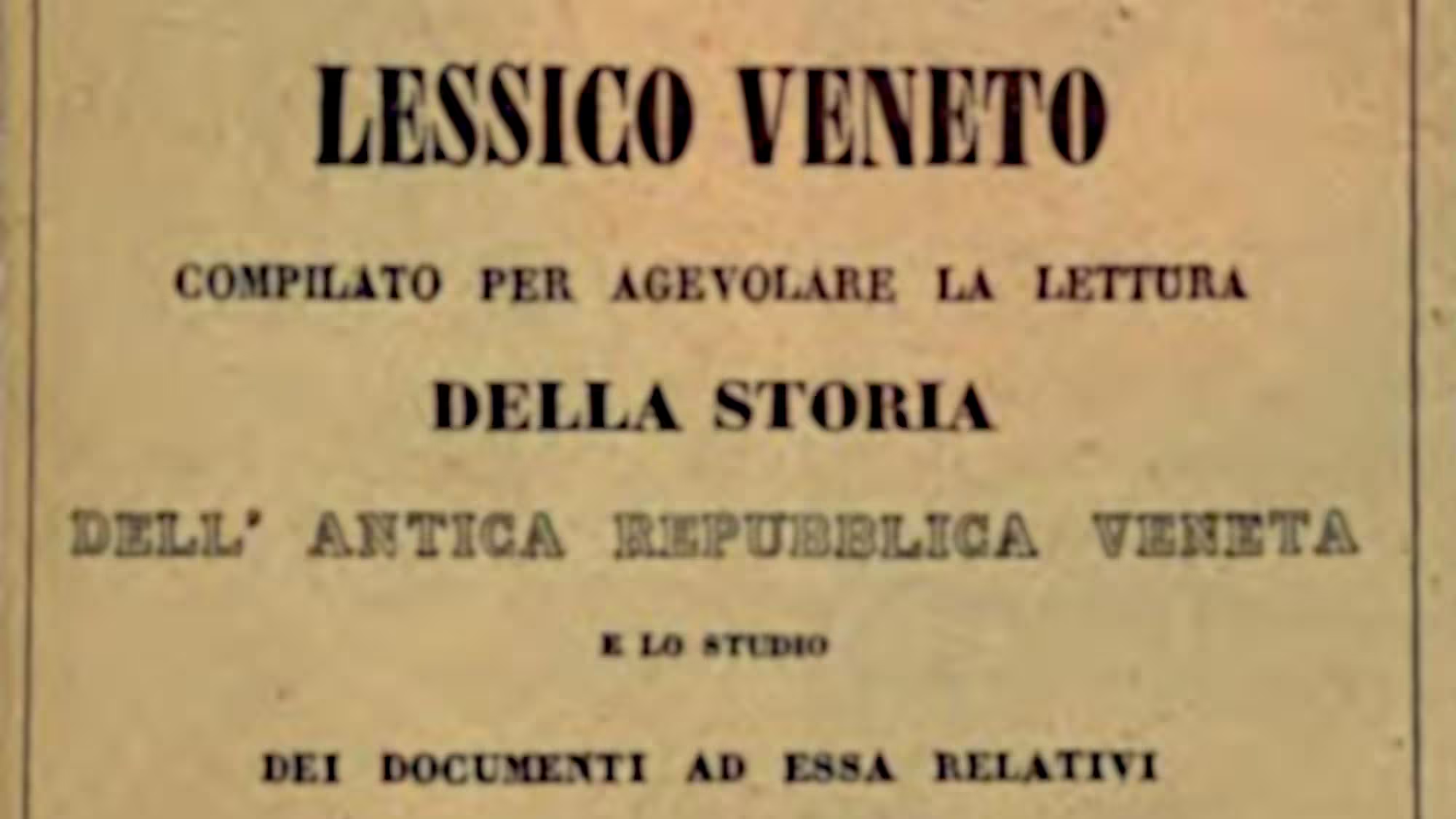
Leave a Reply